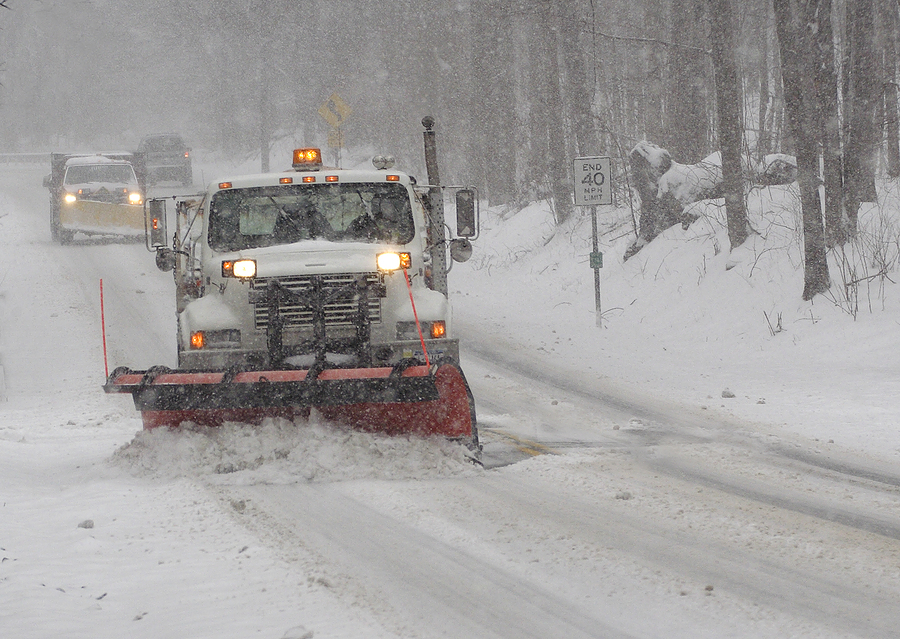Recent winter storms have already left a path of damage and power outages across the country. When a storm strikes, it’s important to know what to do if the home is damaged or if the insured gets involved in an auto accident.
Rhode Island Superintendent of Insurance Joseph Torti III and the National Association of Insurance Commissioners are offering some guidance to help consumers deal with a property damage claim or auto accident.
What to Do if Damage Occurs to the Home
• Call the insurance company or agent with the policy number and other relevant information as soon as possible. Cooperate fully with the insurance company, and ask what documents, forms and data are needed.

• Take photographs/video of the damage.
• Make the repairs necessary to prevent further damage to the property (i.e., cover broken windows, leaking roofs and damaged walls). Do not have permanent
repairs made until the insurance company has inspected the property and the policyholder has reached an agreement on the cost of repairs.
• Save all receipts, including those from the temporary repairs covered by the insurance policy.
• If the home is damaged to the extent that the insured cannot live there, ask the insurance company if the insured’s policy has coverage for additional living expenses incurred
while repairs are being made. Save all receipts to document these costs.
• The insured will be asked to make a list of everything damaged or destroyed. This process can be easier with a good home inventory. If there is no home inventory, make the list room by room.
• Consumers can also download the free NAIC Home Inventory apps for iPhone or the Android version to get started on the home inventory. The app guides consumers through capturing images, descriptions, bar codes and serial numbers, and storing them electronically for safekeeping. The app even creates a backup file for e-mail sharing. Once the home inventory is completed, talk with the insurance agent to make sure the homeowners or renter’s policy is adequate.
What Damage to the Home is Covered?
• Damage caused by wind, wind-driven rain, trees or other falling objects, and the collapse of a structure due to weight of ice or snow are typically covered under most standard homeowners policies. Frozen pipes as the result of extreme cold might not be covered if the damage is due to negligence, such as failing to maintain an adequate temperature in the house when the ability to do so is there. Check the policy and call the insurance agent or company for clarification or answers to specific questions.
What Damage to the Home is Not Covered?
• The following events are typically not covered by the standard homeowners insurance policy: Interior water damage from a storm, when there is no damage to the roof or walls of your home; damage as the result of a flood; removal of fallen trees (if the trees do not land on and damage your home); food spoilage due to a power outage; and water damage from backed-up drains or sewers. Some insurers offer endorsements (i.e., additional protection that may be purchased) for certain coverages not covered under the standard homeowner policy. Check with the agent or the insurance company to determine what additional endorsement the insured may have under the policy and to discuss insurance needs.
What to Do in Case of an Auto Accident
• Call the police.
• Obtain the following information: The names, addresses, telephone numbers and driver’s license numbers of all persons involved in the accident, and any witnesses.
• Record the time, date, location, road conditions, make and year of vehicles involved, apparent damages and injuries, and the insured’s account of what happened.
• Call the insurance agent or company to report the incident as soon as possible. Ask the agent what documents, forms and data will be needed.
• Take notes each time when talking with the insurance company, agent, lawyers, police or others involved in the situation. Write down the dates, times, names and subjects discussed, as well as any decisions or promises made.
• Ask the insurance company if the insured’s policy has coverage for a rental vehicle if the insured’s car is not drivable. Save all receipts and bills, including those from renting a car or having the car towed and/or stowed.
• Consumers can also download the free NAIC’s WreckCheck mobile application for both iPhone and Android. The application outlines what to do immediately following an auto accident and takes users through a step-by-step process to create their own accident report. It also provides tips for staying calm, safe and smart on the road, and makes it easy to capture photos and document the necessary information to file an insurance claim. Additionally, the app lets users email a completed accident report directly to themselves and their insurance agents.
Source: R.I. Department of Business Regulation, Insurance Division
Topics Carriers Agencies Auto Claims Homeowners
Was this article valuable?
Here are more articles you may enjoy.


 ‘Structural Shift’ Occurring in California Surplus Lines
‘Structural Shift’ Occurring in California Surplus Lines  Florida Insurance Costs 14.5% Lower Than Without Reforms, Report Finds
Florida Insurance Costs 14.5% Lower Than Without Reforms, Report Finds  AIG Underwriting Income Up 48% in Q4 on North America Commercial
AIG Underwriting Income Up 48% in Q4 on North America Commercial  Trump’s Repeal of Climate Rule Opens a ‘New Front’ for Litigation
Trump’s Repeal of Climate Rule Opens a ‘New Front’ for Litigation 

